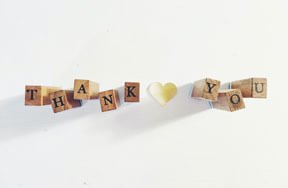The Kids' Guide to Black Lives Matter: Who, What, When, Why, & How
#BLM is trending worldwide.
Aug 16, 2020In the wake of recent events including the police killings of George Floyd and Breonna Taylor, to name a couple, phrases like “Black Lives Matter,” “police brutality,” and “systemic racism” are used on a daily basis. Such a heavy and controversial topic might be hard to talk about. It can be especially difficult to ask questions.

In this brief guide to the Black Lives Matter movement, its history, and systemic racism in the U.S. today, I’ll define some key terms` and hopefully answer some of the questions teens and pre-teens (and even some adults) are hesitant to ask.
Let’s start out with a question I’ve heard quite a few times lately…
Why Can’t I Say “All Lives Matter”?
When someone is saying, “Black lives matter,” they are not saying that non-Black lives don’t matter. They’re simply saying that, right now, in America, we need to focus on making sure everyone realizes that Black lives matter (at the bare minimum).
I read a pretty good analogy the other day that explains why saying “all lives matter” to a pro-BLM protestor could be hurtful. For example, let’s say you’re helping to run a fundraiser to promote leukemia research. Maybe someone that you care about would benefit from this fundraiser, or maybe you’re just passionate about the cause. Either way, leukemia research is important to you. You ask one of your friends if they’ll come to this fundraiser and maybe donate some money. Your friend says, “But don’t all cancers matter? Why should we be focusing on this type of cancer, in particular?”
 Intersectionality means that everyone has multiple identities Courtesy of International Women's Development Agency
Intersectionality means that everyone has multiple identities Courtesy of International Women's Development Agency
We can all agree that, yes, all cancers do matter. All cancer research is important. But right now, in this example, we’re focusing on leukemia research because it’s easier to focus on one thing at a time than to try to solve all the world’s problems at once.
This example could also represent the reason we shouldn’t say “all lives matter” to a Black Lives Matter (BLM) protestor if we replace the leukemia research fundraiser with a BLM protest and types of cancer with race.
All lives do matter. But right now the BLM movement is focusing on creating racial equality by making sure Black individuals are treated fairly. However, that is not to say all other groups are treated fairly in today’s society.
I’m not Black. What can the BLM Movement do for me?
In 1989, Kimberlé Williams Crenshaw created the term “intersectionality.” Essentially, intersectionality, originally a legal term, means that everyone is made up of multiple identities. For example, I am not just a woman, but a white, woman, Jewish college student from the U.S.
Intersectionality has become a large part of the BLM movement. BLM organizers and activists claim that Black people cannot be free until all Black people are free – meaning Black people who are also Jewish, Muslim, low-income, queer, transgender, and/or immigrants, for example, must be considered equals in society.

So, in order to achieve this goal of helping all Black people, the BLM movement aims to help everyone who is considered less-than-equal in society. The movement then focuses on helping people of all religions, sexualities, nationalities, mental, physical, and emotional abilities, levels of education, ages, genders, and incomes, to name a few.
Chances are, everyone has or will at some point have an identity that is treated less-than-equally in society. In this way, BLM is for everyone. With that said, some spaces in the movement should be reserved for Black individuals, and it might not be appropriate for non-Black individuals to start speaking at a protest, for example. However, non-Black people are welcome to join most protests as long as they remain respectful.
Protests can be really empowering and exciting, but check with a parent or guardian for permission before heading out to one.
 George Floyd protests in Uptown CharlotteCourtesy of Unsplash
George Floyd protests in Uptown CharlotteCourtesy of Unsplash
Where Can I Go to Learn More?
If this is something of interest to you, there are lots of places you can go to educate yourself.
Sometimes, Googling this subject can be pretty intimidating and the results can be bleak. So, here are some terms you can type into Google:
- Systemic Racism
- Intersectionality
- School-to-Prison Pipeline
- Defunding the Police
 Protestor holds up a sign at a rallyCourtesy of James Eades on Unsplash
Protestor holds up a sign at a rallyCourtesy of James Eades on Unsplash
You can also watch these family-friendly, educational, and interesting movies:
- Becoming – A film about Michelle Obama which follows her as she goes on a tour to promote her autobiography by the same name
- Malcolm X -- This film biographies this civil rights activist who isn’t often portrayed too kindly by U.S. school education
- Self-Made: Inspired by the Life of Madam C.J. Walker – A film about a Black, female entrepreneur
- Hidden Figures – A biographical movie about three Black women who revolutionized aerospace travel
- The Death and Life of Marsha P. Johnson – Though this film might be for older audiences, it shares a great perspective on a legendary transgender woman’s fight for LGBTQ+ equality
I would also advise that you follow these accounts on Instagram:
As a disclaimer, though, on Instagram, there are far fewer regulations about whether information must be factual and/or free of inappropriate language. Keep that in mind as you look through these accounts as well as those you may find on your own. Social media has been really important to organizers since it was created – social justice and political organizers can now reach a worldwide audience. They can also post videos of their rights being violated by police officers or other respected authorities. It may have its faults, but social media is a great place to look into issues you care about – or even issues you don’t really know about yet.
 Graphic depicts two people attending a protestCourtesy of Instagram @BLM
Graphic depicts two people attending a protestCourtesy of Instagram @BLM
Have Your Say
Did you learn anything from this article? Do you have any questions it didn’t answer? Have you seen any other movies, read any books, or followed any Instagram accounts that helped you understand this topic? Let us know in the comments below!

































